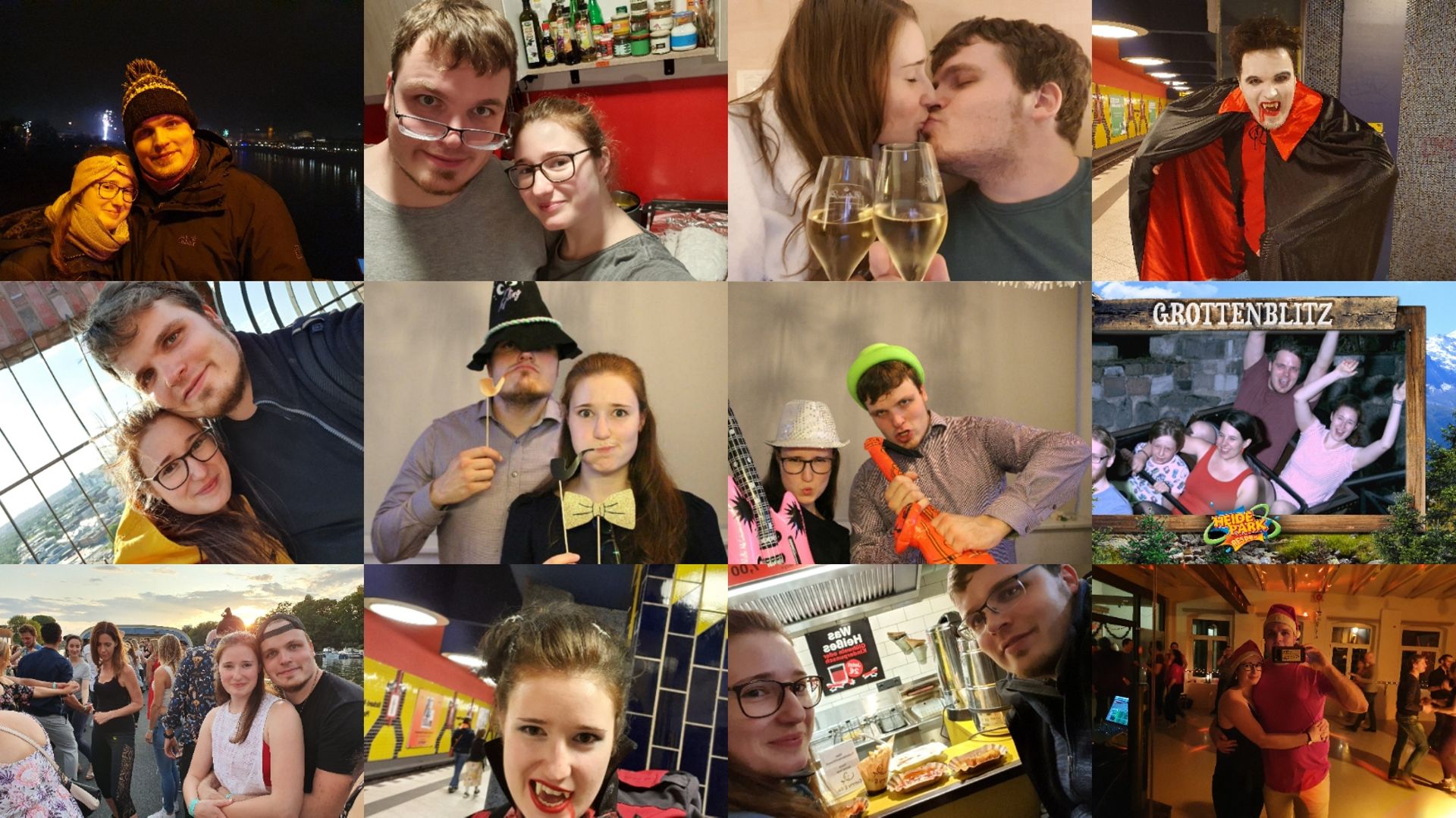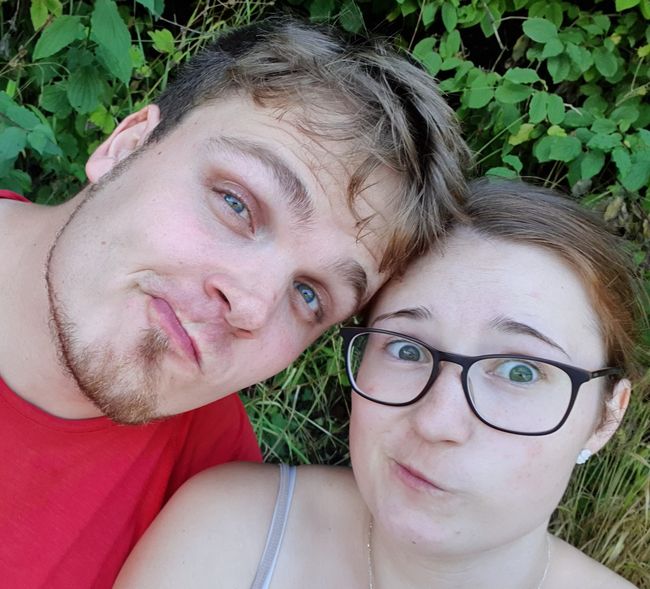Holidaymakers under house arrest
प्रकाशित कीता: 28.03.2020
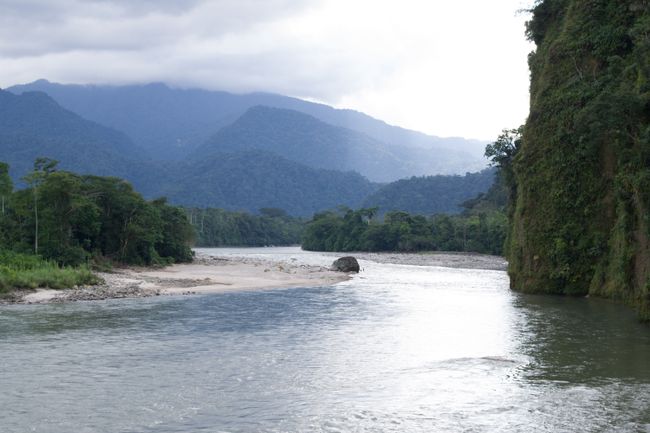
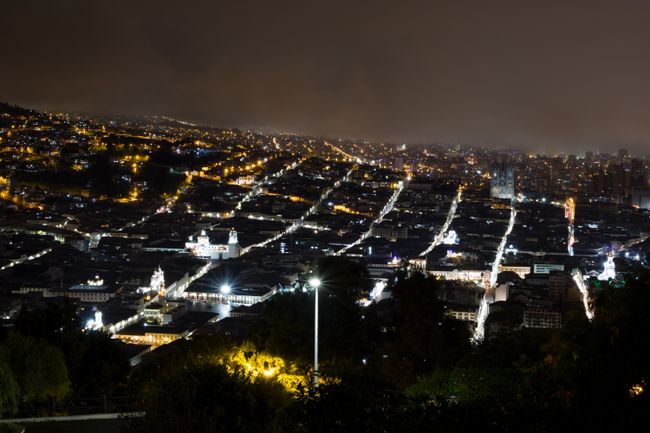
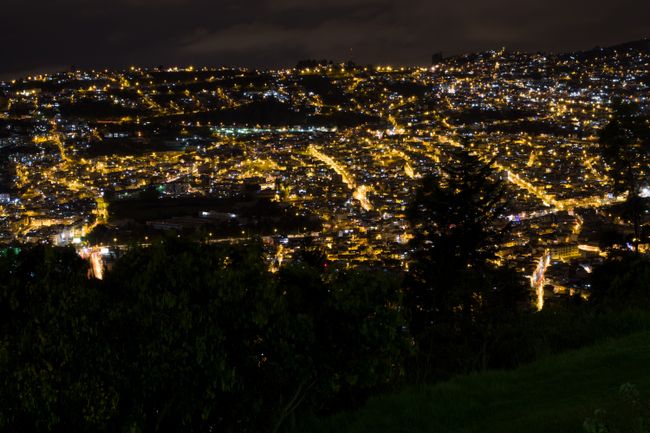
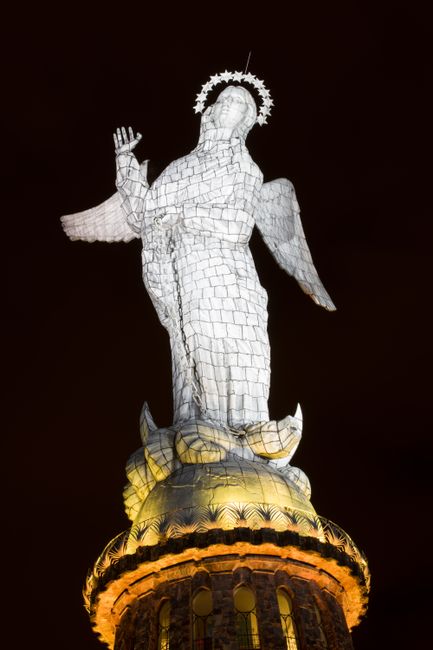
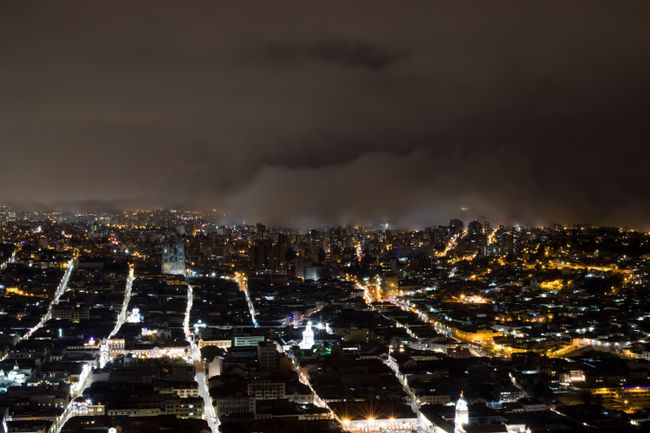
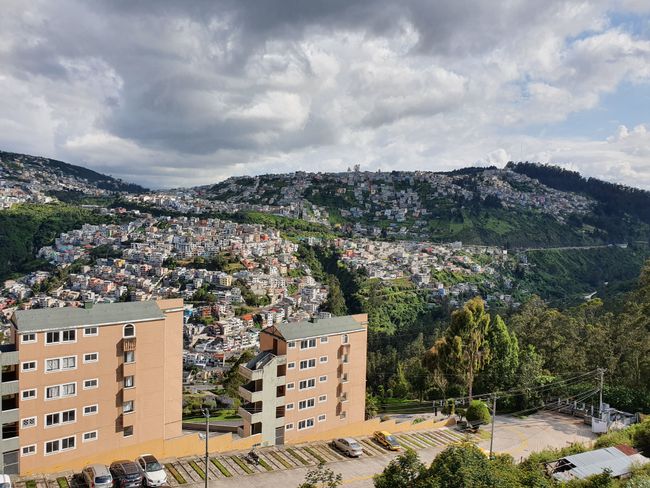
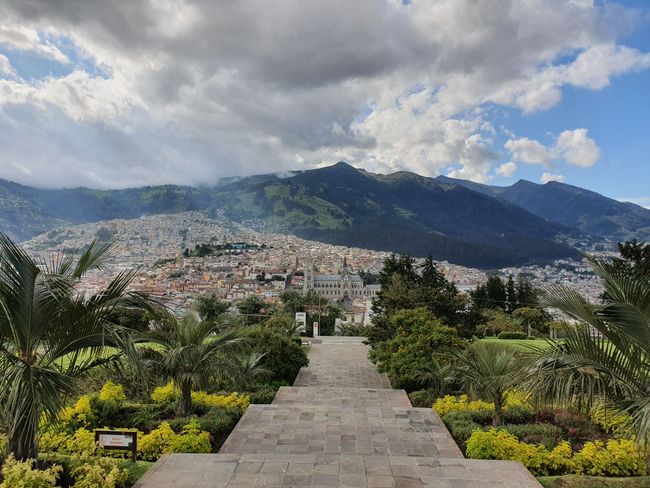
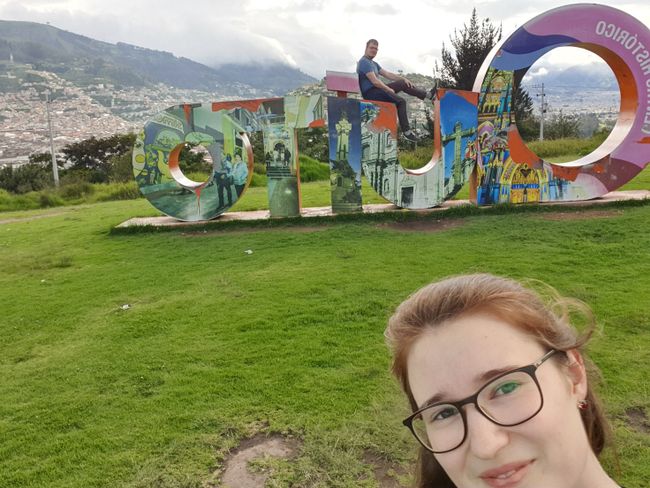
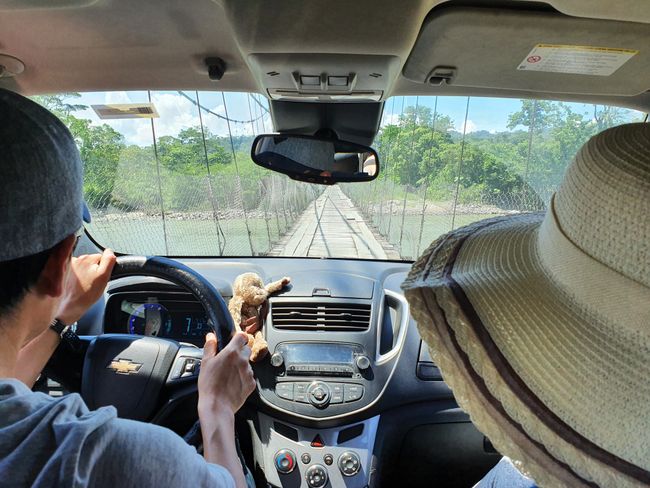
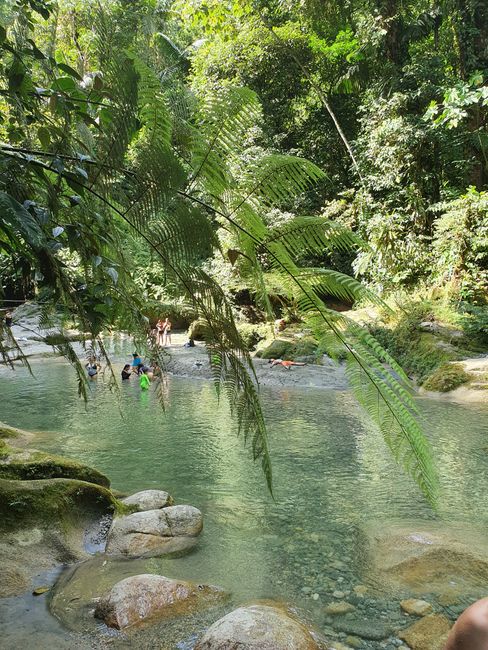
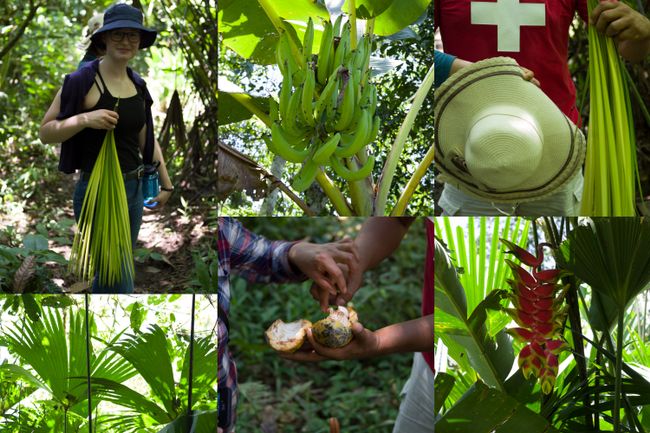
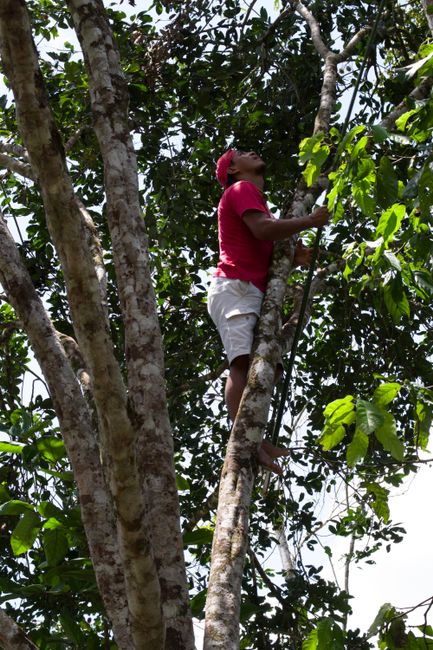
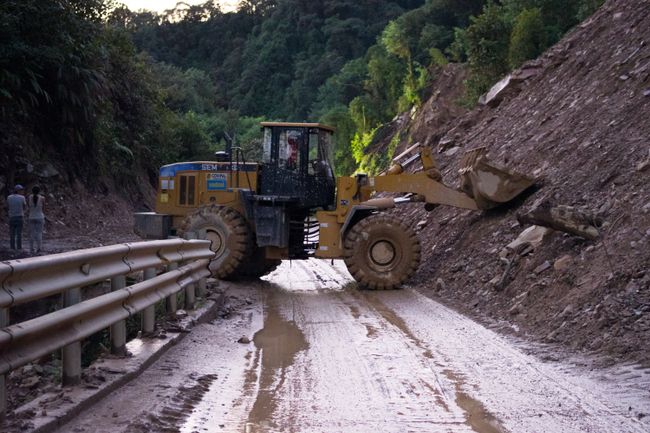
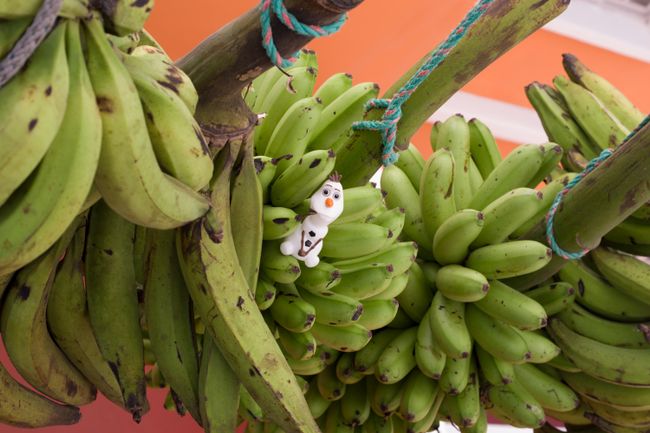
न्यूज़लेटर दी सब्सक्राइब करो
Dear fellow sufferers,
We want to get in touch with you again after a long time in our self-imposed exile.
But first we would like to report from a time beyond the changed circumstances. About 2-2.5 weeks ago, together with our host family, we visited one evening one of the landmarks of the city, the Virgen de el Panecillo. The good thing: Since our host family has a car, we were able to drive directly to the mountain on which the statue is located without experiencing the personal economic crisis of being robbed before the impact of the Corona crisis. Above the museum, located in the base of the statue, there is a platform from which we could view the city at night. Ten minutes earlier, it had been pouring rain, but now the view was clear for some nice photos, thank goodness, considering that we currently can't go out at such times.
Then, on one of the following days, we were invited to have dinner with friends of our family. The family we ate with was also very nice, but that day we really appreciated how attractive and delicious the food is under Vicente's and Martha's cooking. Unfortunately, we didn't take a photo of the traditional Ecuadorian soup that was offered to us that evening (it seemed a bit impolite to us), but the appetizer can be described in a few words as follows: The soup looked from the outside as if an extraterrestrial being wanted to jump out of it into our faces at any moment. However, after initial skepticism, we were able to eat the soup without (at least until now) being infested by a foreign parasite. Afterwards, we were informed that the soup consists of parts of the pig that are rarely consumed by humans in our latitudes.
The next day, the penultimate day of freedom of movement in Ecuador, we all drove to Tena, a small town about 4 hours by car from Quito, which is located at the edge of the jungle. From there, we drove with Juan, a friend of our host family, to the jungle lands owned by Juan's family, and he showed us various plants, from the cocoa tree to various herbs and crops to banana trees and lychee-like trees. It wasn't just showing, in fact we made a big purchase of bananas and lychees, and various other rarities found their way into our bags or into the trunks of the two cars that were with us. Fortunately, the said trunks, along with their occupants and vehicles, made it over a bridge, which more closely resembles a hammock than the Waldschlösschen Bridge, over a river about 20 km from Tena. After plundering the lands, it was now 2 pm and over 30 degrees Celsius in the shade, so we set out with our loot to the - as our friends put it - blue lagoons; we might rather describe this water adventure as a whitewater river. It was really nice to dive into the cold of the river and let ourselves be carried away by the currents of the water. It reminded us a little bit of Termen, except that the whirlpools and currents here were natural. =) The only drawback was that there were plenty of other, slightly smaller visitors next to us, who cheekily didn't even pay an entrance fee: mosquitoes. So while we swam and then enjoyed our fish, which was cooked on the grill in large leaves in a traditional way, the numerous creatures also helped themselves to us. =D
In the late afternoon, we set off again on the long journey back to Tena. And by long, we really mean long. We initially set off as planned until we suddenly came across a road with a mobile sign that stated that no passage was allowed after 6 pm. With the confirmation from the locals, we confidently passed the sign as quickly as possible around quarter to seven and continued towards the narrow passage, which according to the sign should have been closed from 6 pm. Even on the outward journey, this narrow passage was very adventurous, as just a normal car could barely pass through it without falling down the slope. But on that evening, the roadblocks planned for the following days were simply brought forward. It was impossible to pass because of an optimally parked construction vehicle. (The reason was not the coronavirus, but the fact that so much water flows down the mountain at night that passing would be too dangerous.) Unfortunately, we had no choice but to turn around and drive back to Tena via Puyo, Baños and past Cotopaxi back to Quito. As if that wasn't enough, shortly afterwards we had a flat tire, so we quickly changed one tire and even had the damaged tire repaired, even though it was already 8 pm. As if we had anticipated that only two days later driving freely at night would no longer be allowed, we spent half the night driving in order to see as much of Ecuador as possible, even at night. ;-) About ten hours after we started, we finally arrived back at the language school around 2:30 am, where we were more than expected, because one of the two other remaining language students had been standing in front of a closed door since about 2 pm, as he had left his key in his jacket pocket on Cotopaxi and neither the other language student nor we were in the language school (which also includes the apartments where the two were living).
Since then, we have been largely confined to the house, which consists of the apartments of our host family, the apartments, a kind of social room, and the language school, due to the curfew. Despite about 6 hours of Spanish per day, we still have a lot of time to devote to various projects. For example, Magda is taking private guitar lessons and plays diligently, we have started training BodyPump here (although we haven't been able to get too many weights, 5 kilograms at this altitude feels more than four times as heavy as in Germany^^), from time to time we dance (which is also very strenuous, but we hope that thanks to BodyPump we will be able to do more and more), we have started programming a bit, and of course we also occasionally watch movies/series, which we will start doing in Spanish from tomorrow. =) As for ideas for leisure activities, we actually have more than we have time for.
As you can tell, we have decided to stay in Ecuador. This was not an easy decision for us, but we made a pro-contra list and said that we have to make a decision. Because the worst thing was actually that we were in such a state of uncertainty between staying and leaving, and that burdened us much more than anything else about the situation.
To conclude this blog post, we would like to write something about the situation in Ecuador, because we are sure that it will be of interest to some of you:
As already mentioned, the measures against the coronavirus also began here two weeks ago. Since 17.03.20, long- and short-distance transportation (both basically buses) has been suspended in Ecuador, after all of Ecuador's borders were closed as early as Sunday evening (the day we were in Tena). These measures were accompanied by similar measures as in Germany: restriction of mobility to essentials (doctor, pharmacy, supermarket, etc.). The difference to Germany: here, the restrictions, at least in Quito, were enforced much more rigorously in the form of road checks, and even in supermarkets, only a limited number of people were allowed in at a time. These measures and an absolute curfew from 4 pm in Quito&Guayaquil (from 7 pm in the rest of the country) were introduced at a time when there were less than 100 confirmed cases of Corona in Ecuador. Of course, this is also due to a significantly worse healthcare system, which would fail much faster than the German system.
Since Tuesday of this week, further measures have been put in place: the absolute curfew has been extended for the whole country from 2 pm in the afternoon to 5 am in the morning. Disobeying this is punished from the beginning with very high fines of up to 6000 dollars or imprisonment. Furthermore, supermarket visits have been further restricted. There is a system according to which on Monday only people with ID numbers ending in 1 and 2 are allowed in the supermarket. On Tuesday, it's 3 and 4. And so on. On Saturday, it's all even numbers, on Sunday, it's all odd numbers. The problem is that our passports end with an X. :D In addition, a large supermarket the size of a REWE market, including staff, may not accommodate more than 50 people at the same time. This means that we currently have to wait for about an hour at a normal-sized supermarket and cannot enter as a group of two. On top of that, as of Tuesday, it is mandatory to wear a face mask and rubber gloves in a supermarket. The purpose of the gloves is debatable, but in Ecuador you can observe that the few remaining people on the streets ALL wear a mask, and this ultimately protects by significantly reducing the spread of germs. (If you don't have masks or gloves yet, you can buy them for a cheap price right in front of the supermarket, probably already infected. ;-) )
One good thing about all of this: The air in Quito is as clean as ever and we would swear that the climate goals are being pushed forward quite well at the moment. ;-D Greta is probably proud of Ecuador. ^^
Best regards from distant Ecuador, stay healthy and active!
Magda, Carsten and Olaf
न्यूज़लेटर दी सब्सक्राइब करो
परता
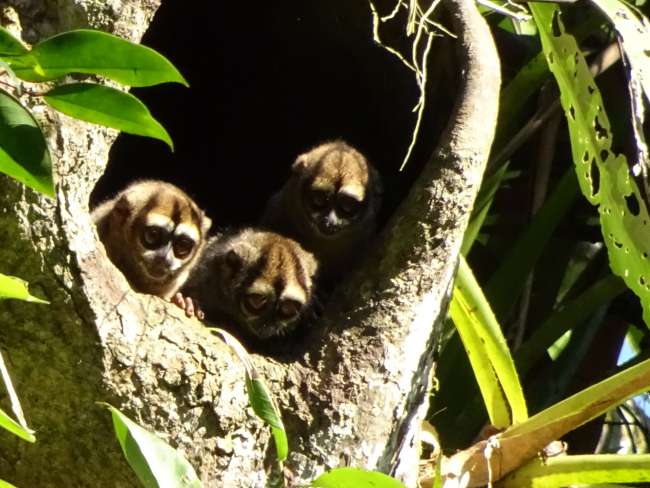
यात्रा दी रिपोर्ट इक्वाडोर ऐ।
